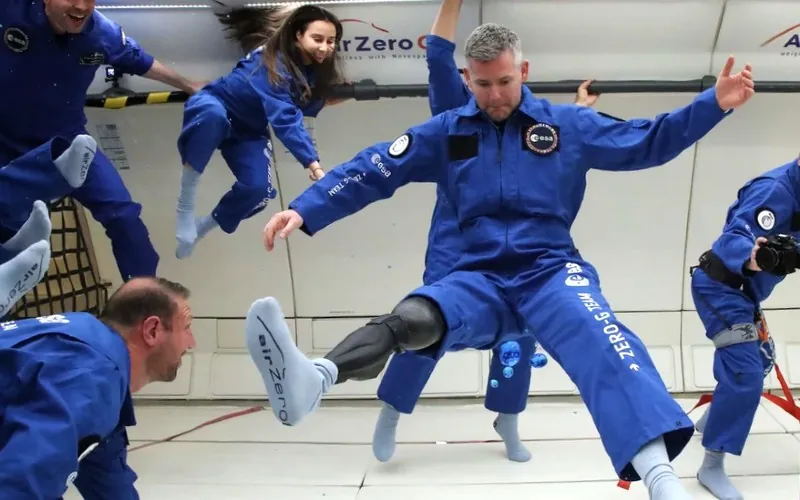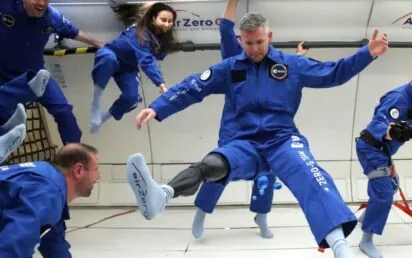John McFall has been cleared to become the first person with a physical disability to take part in a mission to the International Space Station (ISS).
The former Paralympian and surgeon has been medically certified to undertake a long-duration mission, the European Space Agency announced, which he described as an “important milestone in the history of human spaceflight”.
McFall, who lost his right leg above the knee in a motorbike accident in 2000 when he was 19, began running after he was fitted with a prosthesis. He would go on to win multiple medals for Great Britain, including bronze in the 100 metres (T42) at the 2008 Summer Paralympics in Beijing.
Now he has been selected to take part in ESA’s Fly! Feasibility study in 2022, to look at the challenges of getting an astronaut with a disability to the ISS.
The study concluded in late 2024 and successfully demonstrated it is technically feasible to fly someone with a physical disability on a six-month mission to the ISS as a fully integrated crew member.
The end of the feasibility study marks the start of the next phase: Fly! Mission Ready.
“It’s great that we can say after a huge amount of work in the last 18 months that we have demonstrated that it’s technically possible for someone with a disability like mine to fly on a long duration mission,” said McFall.
“And now we’re progressing to the next phase and what we want to do is realise that opportunity to fly, so moving forward, we’re moving into the Mission Ready phase.
“The Mission Ready phase is an important step in moving forward to realise a potential flight opportunity. This phase will include looking at hardware certification and moving further down that process.
“We’re going to be looking at what potential science could be conducted on the International Space Station should I get the opportunity to fly and importantly we’re looking towards medical certification for me to fly on a long duration mission.
“One of the roles of an astronaut is to do important science in microgravity whilst working in space and it’s really my hope that if I get the chance to fly we realise what we do in space, the things we learn, the problems we solve, the technology that we develop has a trickle-down effect and benefits people here on earth in wider society.
“This progression to the Mission Ready phase is a really important milestone in the history of human spaceflight.”
Liz Johns, interim head of space exploration at the UK Space Agency, said: “It is fantastic to see that John and the team at ESA have proved it is technically possible for someone with a physical disability like his to live and work on the International Space Station.
“This is ground-breaking work that no other space agency has done before. Now we are looking forward to supporting John during the next phase: Fly! Mission Ready. This is an essential step towards the first long-term mission for an astronaut with a physical disability.”
Daniel Neuenschwander, ESA director of human and robotic exploration, said there were three main elements of the Mission Ready phase; the type of scientific research activities that would be conducted on a mission; the qualification of the prosthesis and the medical certification.
McFall is currently taking part in ESA Astronaut Reserve training at the European Astronaut Centre in Germany, along with the UK’s Meganne Christian. Rosemary Coogan graduated from astronaut basic training in April 2024 and is currently training with NASA in the US.
Inside story of how a mum’s side hustle won over the Dragons


